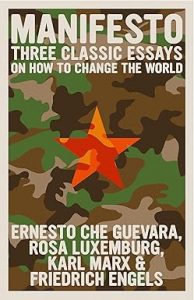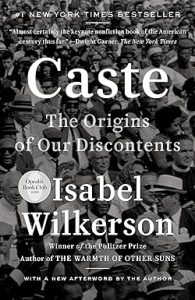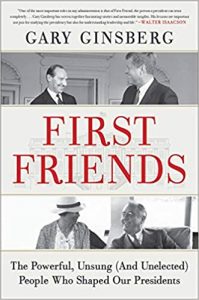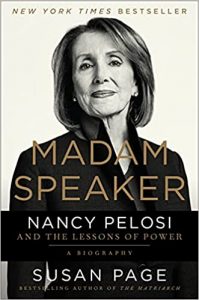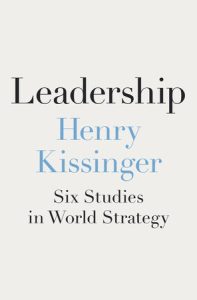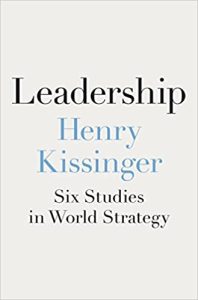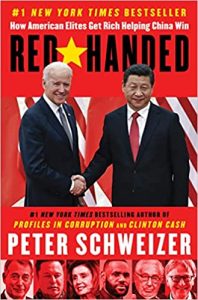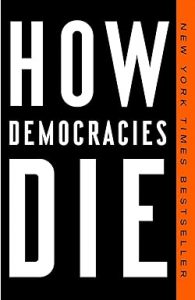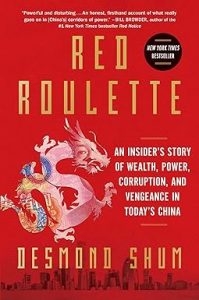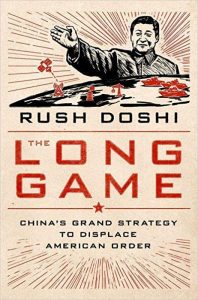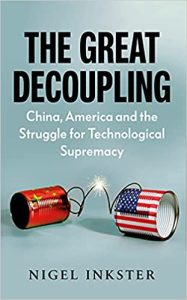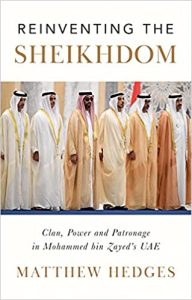Caste
₦17,000.00In this brilliant book, Isabel Wilkerson gives us a masterful portrait of an unseen phenomenon in America as she explores, through an immersive, deeply researched, and beautifully written narrative and stories about real people, how America today and throughout its history has been shaped by a hidden caste system, a rigid hierarchy of human rankings.
Beyond race, class, or other factors, there is a powerful caste system that influences people’s lives and behavior and the nation’s fate. Linking the caste systems of America, India, and Nazi Germany, Wilkerson explores eight pillars that underlie caste systems across civilizations, including divine will, bloodlines, stigma, and more. Using riveting stories about people—including Martin Luther King, Jr., baseball’s Satchel Paige, a single father and his toddler son, Wilkerson herself, and many others—she shows the ways that the insidious undertow of caste is experienced every day. She documents how the Nazis studied the racial systems in America to plan their outcasting of the Jews; she discusses why the cruel logic of caste requires that there be a bottom rung for those in the middle to measure themselves against; she writes about the surprising health costs of caste, in depression and life expectancy, and the effects of this hierarchy on our culture and politics. Finally, she points forward to ways America can move beyond the artificial and destructive separations of human divisions, toward hope in our common humanity.
Original and revealing, Caste: The Origins of Our Discontents is an eye-opening story of people and history, and a reexamination of what lies under the surface of ordinary lives and of American life today.
First Friends: The Powerful, Unsung (and Unelected) People Who Shaped Our Presidents
₦16,000.00Here are the riveting histories of myriad presidential friendships, among them:
Abraham Lincoln and Joshua Speed: They shared a bed for four years during which Speed saved his friend from a crippling depression. Two decades later the friends worked together to save the Union.
Harry Truman and Eddie Jacobson: When Truman wavered on whether to recognize the state of Israel in 1948, his lifelong friend and former business partner intervened at just the right moment with just the right words to steer the president’s decision.
Franklin Delano Roosevelt and Daisy Suckley: Unassuming and overlooked during her lifetime, Daisy Suckley was in reality FDR’s most trusted, constant confidant, the respite for a lonely and overworked President navigating the Great Depression and World War II
John Kennedy and David Ormsby-Gore: They met as young men in pre-war London and began a conversation over the meaning of leadership. A generation later the Cuban Missile Crisis would put their ideas to test as Ormsby-Gore became the president’s unofficial, but most valued foreign policy advisor.
These and other friendships—including Thomas Jefferson and James Madison, Franklin Pierce and Nathaniel Hawthorne, and Bill Clinton and Vernon Jordan—populate this fresh and provocative exploration of a series of seminal presidential friendships.
Madam Speaker: Nancy Pelosi and the Lessons of Power
₦16,000.00Featuring more than 150 exclusive interviews with those who know her best—and a series of in-depth, news-making interviews with Pelosi herself—MADAM SPEAKER is unprecedented in the scope of its exploration of Nancy Pelosi’s remarkable life and of her indelible impact on American politics.
Before she was Nancy Pelosi, she was Nancy D’Alesandro. Her father was a big-city mayor and her mother his political organizer; when she encouraged her young daughter to become a nun, Nancy told her mother that being a priest sounded more appealing. She didn’t begin running for office until she was forty-six years old, her five children mostly out of the nest. With that, she found her calling.
Nancy Pelosi has lived on the cutting edge of the revolution in both women’s roles and in the nation’s movement to a fiercer and more polarized politics. She has established herself as a crucial friend or formidable foe to U.S. presidents, a master legislator, and an indefatigable political warrior. She took on the Democratic establishment to become the first female Speaker of the House, then battled rivals on the left and right to consolidate her power. She has soared in the sharp-edged inside game of politics, though she has struggled in the outside game—demonized by conservatives, second-guessed by progressives, and routinely underestimated by nearly everyone.
All of this was preparation for the most historic challenge she would ever face, at a time she had been privately planning her retirement. When Donald Trump was elected to the White House, Nancy Pelosi became the Democratic counterpart best able to stand up to the disruptive president and to get under his skin. The battle between Trump and Pelosi, chronicled in this book with behind-the-scenes details and revelations, stands to be the titanic political struggle of our time.
The Prince
₦15,000.00That Machiavelli’s name has become synonymous with cold-eyed political calculation only heightens the intrinsic fascination of The Prince—the world’s preeminent how-to manual on the art of getting and keeping power and one of the literary landmarks of the Italian Renaissance.
Written in a vigorous, straightforward style that reflects its author’s realism, this treatise on states, statecraft, and the ideal ruler is essential reading for anyone seeking to understand how human society actually works.
Accidental Czar
₦15,000.00This riveting graphic novel biography chronicles Vladimir Putin’s rise from a mid-level KGB officer to the autocratic leader of Russia and reveals the truth behind the strongman persona he has spent his career cultivating.
In the West’s collective imagination, Vladimir Putin is a devious cartoon villain, constantly plotting and scheming to destroy his enemies around the globe and in Ukraine. But how did an undistinguished mid-level KGB officer become one of the most powerful leaders in Russian history? And how much of Putin’s tough-guy persona is a calculated performance?
In Accidental Czar, Andrew S. Weiss, a former White House Russia expert, and Brian “Box” Brown show how Putin has successfully cast himself as a cunning, larger-than-life political mastermind?and how the rest of the world has played into the Kremlin’s hands by treating him as one. They shatter all of these myths and expose the man behind the façade.
Leadership
₦15,000.00“Leaders,” writes Henry Kissinger in this compelling book, “think and act at the intersection of two axes: the first, between the past and the future; the second, between the abiding values and aspirations of those they lead. They must balance what they know, which is necessarily drawn from the past, with what they intuit about the future, which is inherently conjectural and uncertain. It is this intuitive grasp of direction that enables leaders to set objectives and lay down a strategy.”
In Leadership, Kissinger analyses the lives of six extraordinary leaders through the distinctive strategies of statecraft, which he believes they embodied. After the Second World War, Konrad Adenauer brought defeated and morally bankrupt Germany back into the community of nations by what Kissinger calls “the strategy of humility.” Charles de Gaulle set France beside the victorious Allies and renewed its historic grandeur by “the strategy of will.” During the Cold War, Richard Nixon gave geostrategic advantage to the United States by “the strategy of equilibrium.” After twenty-five years of conflict, Anwar Sadat brought a vision of peace to the Middle East by a “strategy of transcendence.” Against the odds, Lee Kuan Yew created a powerhouse city-state, Singapore, by “the strategy of excellence.” And, though Britain was known as “the sick man of Europe” when Margaret Thatcher came to power, she renewed her country’s morale and international position by “the strategy of conviction.”
To each of these studies, Kissinger brings historical perception, public experience and—because he knew each of the subjects and participated in many of the events he describes—personal knowledge. Leadership is enriched by insights and judgements that only Kissinger could make and concludes with his reflections on world order and the indispensability of leadership today.
Leadership
₦15,000.00In Leadership, Kissinger analyses the lives of six extraordinary leaders through the distinctive strategies of statecraft, which he believes they embodied. After the Second World War, Konrad Adenauer brought defeated and morally bankrupt Germany back into the community of nations by what Kissinger calls “the strategy of humility.” Charles de Gaulle set France beside the victorious Allies and renewed its historic grandeur by “the strategy of will.” During the Cold War, Richard Nixon gave geostrategic advantage to the United States by “the strategy of equilibrium.” After twenty-five years of conflict, Anwar Sadat brought a vision of peace to the Middle East by a “strategy of transcendence.” Against the odds, Lee Kuan Yew created a powerhouse city-state, Singapore, by “the strategy of excellence.” And, though Britain was known as “the sick man of Europe” when Margaret Thatcher came to power, she renewed her country’s morale and international position by “the strategy of conviction.”
To each of these studies, Kissinger brings historical perception, public experience and—because he knew each of the subjects and participated in many of the events he describes—personal knowledge. Leadership is enriched by insights and judgements that only Kissinger could make and concludes with his reflections on world order and the indispensability of leadership today.
Red Handed
₦15,000.00Peter Schweizer says that, in a quarter-century as an investigative journalist, this is the scariest investigation he has ever conducted.
That the Chinese government seeks to infiltrate American institutions is hardly surprising. What is wholly new, however, are the number of American elites who are eager to help the Chinese dictatorship in its quest for global hegemony.
Presidential families, Silicon Valley gurus, Wall Street high rollers, Ivy League universities, even professional athletes—all willing to sacrifice American strength and security on the altar of personal enrichment.
In Red-Handed, six-time New York Times bestselling investigator Peter Schweizer presents his most alarming findings to date by revealing the secret deals wealthy Americans have cut to help China build its military, technological, and economic might. Equally as astonishing, many of these elites quietly believe the Chinese dictatorial regime is superior to American democracy.
Schweizer and his team of forensic investigators spent over a year scouring a massive trove of global corporate records and legal filings to expose the hidden transactions China’s enablers hoped would never see the light of day. And as Schweizer’s past bombshells like Profiles in Corruption, Secret Empires, and Clinton Cash all made clear, there are bad actors on both ends of the political spectrum.
Exhaustively researched, crisply told, and chilling, Red-Handed will expose the nexus of power between the Chinese government and the American elites who do its bidding.
How Democracies Die
₦14,500.00Donald Trump’s presidency has raised a question that many of us never thought we’d be asking: Is our democracy in danger? Harvard professors Steven Levitsky and Daniel Ziblatt have spent more than twenty years studying the breakdown of democracies in Europe and Latin America, and they believe the answer is yes. Democracy no longer ends with a bang—in a revolution or military coup—but with a whimper: the slow, steady weakening of critical institutions, such as the judiciary and the press, and the gradual erosion of long-standing political norms. The good news is that there are several exit ramps on the road to authoritarianism. The bad news is that, by electing Trump, we have already passed the first one.
Drawing on decades of research and a wide range of historical and global examples, from 1930s Europe to contemporary Hungary, Turkey, and Venezuela, to the American South during Jim Crow, Levitsky and Ziblatt show how democracies die—and how ours can be saved.
Red Roulette
₦14,000.00As Desmond Shum was growing up impoverished in China, he vowed his life would be different. Through hard work and sheer tenacity he earned an American college degree and returned to his native country to establish himself in business. There, he met his future wife, the highly intelligent and equally ambitious Whitney Duan who was determined to make her mark within China’s male-dominated society. Whitney and Desmond formed an effective team and, aided by relationships they formed with top members of China’s Communist Party, the so-called red aristocracy, he vaulted into China’s billionaire class. Soon they were developing the massive air cargo facility at Beijing International Airport, and they followed that feat with the creation of one of Beijing’s premier hotels. They were dazzlingly successful, traveling in private jets, funding multi-million-dollar buildings and endowments, and purchasing expensive homes, vehicles, and art.
But in 2017, their fates diverged irrevocably when Desmond, while residing overseas with his son, learned that his now ex-wife Whitney had vanished along with three coworkers.
This vivid, explosive memoir shows “how the Chinese government keeps business in line—and what happens when businesspeople overstep” (The New York Times) and is a “singular, highly readable insider account of the most secretive of global powers” (The Spectator).
Wise Gals
₦14,000.00In the wake of World War II, four agents were critical in helping build a new organization that we now know as the CIA. Adelaide Hawkins, Mary Hutchison, Eloise Page, and Elizabeth Sudmeier, called the “wise gals” by their male colleagues because of their sharp sense of humor and even quicker intelligence, were not the stereotypical femme fatale of spy novels. They were smart, courageous, and groundbreaking agents at the top of their class, instrumental in both developing innovative tools for intelligence gathering—and insisting (in their own unique ways) that they receive the credit and pay their expertise deserved.
Throughout the Cold War era, each woman had a vital role to play on the international stage. Adelaide rose through the ranks, developing new cryptosystems that advanced how spies communicate with each other. Mary worked overseas in Europe and Asia, building partnerships and allegiances that would last decades. Elizabeth would risk her life in the Middle East in order to gain intelligence on deadly Soviet weaponry. Eloise would wield influence on scientific and technical operations worldwide, ultimately exposing global terrorism threats. Through their friendship and shared sense of purpose, they rose to positions of power and were able to make real change in a traditionally “male, pale, and Yale” organization—but not without some tragic losses and real heartache along the way.
Meticulously researched and beautifully told, Holt uses firsthand interviews with past and present officials and declassified government documents to uncover the stories of these four inspirational women. Wise Gals sheds a light on the untold history of the women whose daring foreign intrigues, domestic persistence, and fighting spirit have been and continue to be instrumental to our country’s security.
A Tale Of Two Worlds
₦14,000.00First came the disintegration of the Ottoman Empire following World War I; then, in the 1950s and ’60s, the Nasser-inspired wave of Arab nationalism and socialism. The Arab world’s third great political cataclysm of the past 100 years has also brought permanent changes, but not as its activists had hoped: the 2011 uprisings. Their consequences have differed greatly from area to area, splintering the Arab region into four different worlds. The Levant states have disintegrated, possibly irreversibly. The Gulf monarchies have embarked on far- reaching plans of economic and social change to stave off discontent. Egypt has retreated into military authoritarianism and a war on Islamists, threatening its future stability.
Only the Maghreb countries, which have started integrating Islamists into their political systems, offer some hope for progress toward democracy. Marina and David Ottaway have brought together fifty years of experience observing the Arab world, and a wealth of first-hand information gathered from living and travelling extensively in the region. A Tale of Four Worlds is an indispensable analysis of the profound upheavals that have shaken–and continue to transform–Arab and global politics.
The Long Game
₦14,000.00For more than a century, no US adversary or coalition of adversaries – not Nazi Germany, Imperial Japan, or the Soviet Union – has ever reached sixty percent of US GDP. China is the sole exception, and it is fast emerging into a global superpower that could rival, if not eclipse, the United States. What does China want, does it have a grand strategy to achieve it, and what should the United States do about it?
In The Long Game, Rush Doshi draws from a rich base of Chinese primary sources, including decades worth of party documents, leaked materials, memoirs by party leaders, and a careful analysis of China’s conduct to provide a history of China’s grand strategy since the end of the Cold War. Taking readers behind the Party’s closed doors, he uncovers Beijing’s long, methodical game to displace America from its hegemonic position in both the East Asia regional and global orders through three sequential “strategies of displacement.” Beginning in the 1980s, China focused for two decades on “hiding capabilities and biding time.” After the 2008 Global Financial Crisis, it became more assertive regionally, following a policy of “actively accomplishing something.” Finally, in the aftermath populist elections of 2016, China shifted to an even more aggressive strategy for undermining US hegemony, adopting the phrase “great changes unseen in century.” After charting how China’s long game has evolved, Doshi offers a comprehensive yet asymmetric plan for an effective US response. Ironically, his proposed approach takes a page from Beijing’s own strategic playbook to undermine China’s ambitions and strengthen American order without competing dollar-for-dollar, ship-for-ship, or loan-for-loan.
The Great Decoupling
₦14,000.00For much of recorded history, China was a leading science and technology power. But just as the West rose, China turned in on itself, and missed the Industrial Revolution. The result was the ‘Hundred Years of Humiliation’, and a long struggle for a modern, yet distinctly Chinese,
civilisational identity. Today, technological innovation has returned to the core of national pride and ambition.
Since the 1980s, reforms have transformed China into the world’s second largest economy and a major global power. Cyber space and other advanced technologies have become a battleground for international dominance; but today’s world relies on global supply chains and interstate collaboration–at
least, for now. Growing tension between the USA and China could result in the two superpowers decoupling their technology–with significant consequences for humanity’s future.
The Great Decoupling shows that this technology contest, and how it plays out, will shape the geopolitics of the twenty-first century.
Reinventing The Sheikhdom
₦14,000.00Though the Arab Spring has reverberated through the Middle East, largely leaving a path of destruction, the relative calm in the United Arab Emirates has offered a regional roadmap for stability. Domestic changes since 2000 have significantly altered the country’s dynamics, firmly cementing power within the Emirates’ evolution has largely been accredited to Abu Dhabi’s crown prince, Mohammed bin Zayed.
His reign has been characterised by the rise of the security apparatus and a micromanaged approach to governance. Mohammed bin Zayed’s strategy of fortification has focused on pre-empting threats from the UAE’s native population, rather than from expatriates or foreign actors. As a result, he has consolidated power, distributing its administration among his tribal and kinship allies. In essence, Mohammed bin Zayed has driven modernisation in order to strengthen his grasp on power.
This book explores Mohammed bin Zayed’s regime security strategy, illustrating the network of alliances that seek to support his reign and that of his family. In an ever-turbulent region, the UAE remains critical to understanding the evolution of Middle Eastern authoritarian control.

